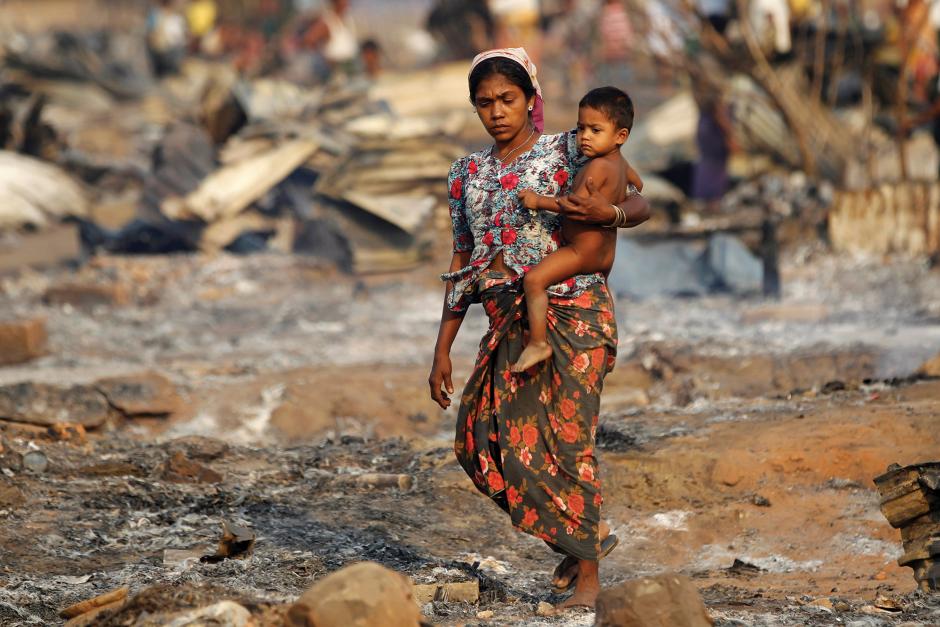Reality Check
Bettina Krause July/August 2016It was a remarkable moment on June 16, 2012, when a slight Burmese woman dressed in purple, with flowers in her hair, stood on the stage of Oslo’s City Hall. As the crowd rose to give her the first of many standing ovations, human rights icon Aung San Suu Kyi began a speech she should have given 21 years earlier.
Back in 1991 when Suu Kyi was awarded the Nobel Peace Prize she was all but cut off from the world, already two years into what would ultimately become 15 years of house arrest under Burma’s military junta. In her long-delayed Nobel lecture, she reflected on the ideals that had sustained her through her long isolation. She described her yearning for democratic freedom, her belief in the universality of human rights, and of the equality of every person. In a quiet voice she spoke of the “fires of suffering and strife” that are “raging around the world” and she declared her belief that, “wherever suffering is ignored, there will be the seeds of conflict, for suffering degrades and embitters and enrages.”
For many, her words now seem heavy with irony. Suu Kyi—today Burma’s de facto leader following landmark democratic elections last year—has yet to speak with such inspiring moral clarity about the human rights disaster she inherited in Rakhine State, in her country’s north. There, a Muslim minority endures discrimination and persecution instigated by Buddhist nationalists. They are denied basic rights of citizenship, access to health care and economic security, and many suffer in refugee camps. A recent US report labeled the Rohingya’s condition “dire,” and said Burma’s government has consistently failed to intervene.
Suu Kyi’s “softly softly” approach to the Rohingya’s plight has been variously interpreted. Some see her neglect as a temporary but necessary political maneuver; others see it as outright complicity in the religious and cultural prejudices that have long fueled the oppression of this minority group. Which is the truer reading? Time will tell.
What the situation clearly provides, however, is an uncomfortable reality check for all who care deeply about the ideals of freedom and peaceful coexistence. Ideals are easy to support; but effective, practical action for healing divisions and overcoming deep-seated prejudices? This is, instead, an unimaginably complex challenge that requires insights not just into a region’s laws, but also consideration of its geopolitics, ethno-politics, and a raft of cultural and religious nuances.
The morass of politics, religious intolerance, and social bigotry in Burma’s Rakhine State, which continues to yield such tragedy, is mirrored in essential characteristics in any number of regions around the world today: Boko Haram’s reign of terror in countries of the Lake Chad Basin; the Islamic State in eastern Syria and northwest Iraq; sectarian violence in Pakistan and India; the persecution of Hmong Christians in Vietnam and minority faith groups in Uzbekistan and Turkmenistan—the list goes on.
It is this reality that will be the focus of scholars, experts and religious liberty advocates from around the world who will gather in August 2017 near Ft. Lauderdale, Florida. They will ask: How can people with deep ideological and religious differences—often honed through years of animosity—learn to live together without violence? And how can nurturing a culture of religious freedom help in this endeavor?
The 8th World Congress for Religious Freedom, organized by the International Religious Liberty Association (IRLA), will bring together some of the world’s foremost thinkers in the field of religious freedom, and is expected to draw more than 900 attendees. But the event is not just for scholars—the three-day congress will explore issues from both an academic and practical perspective.
According to Dr. Ganoune Diop, IRLA’s Secretary General, this is an approach that makes the World Congress ideal for anyone who wants to deepen their understanding of current issues in the world of religious freedom advocacy.
“Too many people today suffer discrimination, persecution, or even martyrdom driven by religious differences,” says Diop. “And it’s clear, also, that the religious freedom landscape globally shows few signs of improvement.”
He says the focus of the Congress—Religious Freedom and the Hope for Peaceful Co-existence—is especially relevant. “Learning to share the public space with those with whom we disagree; learning to overcome humanity’s abysmal record of religious wars, religious ethnic cleansing, and genocide fuelled religious bigotry—these have become some of the most urgent challenges of our time.”
You’re invited
The IRLA’s 8th World Congress for Religious Freedom will be held August 22-24, 2017 at the beach-side Diplomat Resort and Spa by Hilton, in Hollywood, Florida. More than just an academic conference, this three-day congress will offer practical resources, stimulating presentations, and the opportunity to interact with a truly global group of experts, government officials, religious leaders, and advocates.
Online registration opens September 1, 2016, but you can visit www.irla.org for more information about the congress, and to begin planning your visit to beautiful Hollywood, Florida.
Article Author: Bettina Krause
Bettina Krause is the editor of Liberty magazine.
